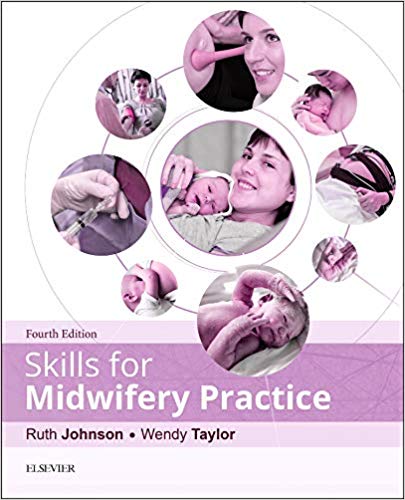
By Ruth Johnson BA(Hons) RGN RM, Wendy Taylor BSc (Hons) MSc RN RM
Paperback: 472 pages
Publisher: Churchill Livingstone; 4 edition (March 16, 2016)
Language: English
ISBN-10: 0702061875
ISBN-13: 978-0702061875
The new edition of this highly acclaimed step-by-step guide continues to offer readers with the relevant physiology, evidence-base and rationale for the key midwifery skills. Authored by experienced practitioners and educationalists, Skills for Midwifery Practice 4e will be ideal for all midwifery students, both from within the UK and worldwide.
- Presents over 150 essential midwifery procedures in an easy-to-read, quick reference format
- ‘Learning Objectives’ and ‘end-of-chapter’ self-assessment exercises allow readers to monitor their progress
- Refers to the latest evidence and research, including current national and international guidelines
- Explains the underlying physiology associated with pregnancy and childbirth
- Over 150 artworks help explain physiological processes and clinical procedures
- ‘Roles and Responsibilities’ boxes define the nature and extent of current practice
- Ideal for use as a basis for teaching and assessment
- New format – now with colour – makes learning even easier!
- Explores the use and significance of the Modified Early Obstetric Warning Scoring Chart
- Discusses advances in equipment usage including the application of sequential compression devices, temporal artery thermometers, and pulse oximetry in the early detection of critical congenital heart disease
- Contains advances in microbiology and infection control including the application and removal of gloves and the use of ANTT for each relevant procedure
- Physiology updates include an expanded section on normal and abnormal breathing patterns, the structure of the stratum corneum at birth and the factors that affect its barrier function, and neonatal reflexes present at birth
- Updated information regarding the use of the automated external defibrillator during maternal resuscitation, and the use of blended air and oxygen and pulse oximetry during neonatal resuscitation
- Care of the traumatised perineum – including expanded discussion of modern suture materials
- Recognition and management of complications associated with infusion therapy and epidural analgesia
Premium Content
Login to buy access to this content.What's Your Reaction?
Excited
0
Happy
0
In Love
0
Not Sure
0
Silly
0

